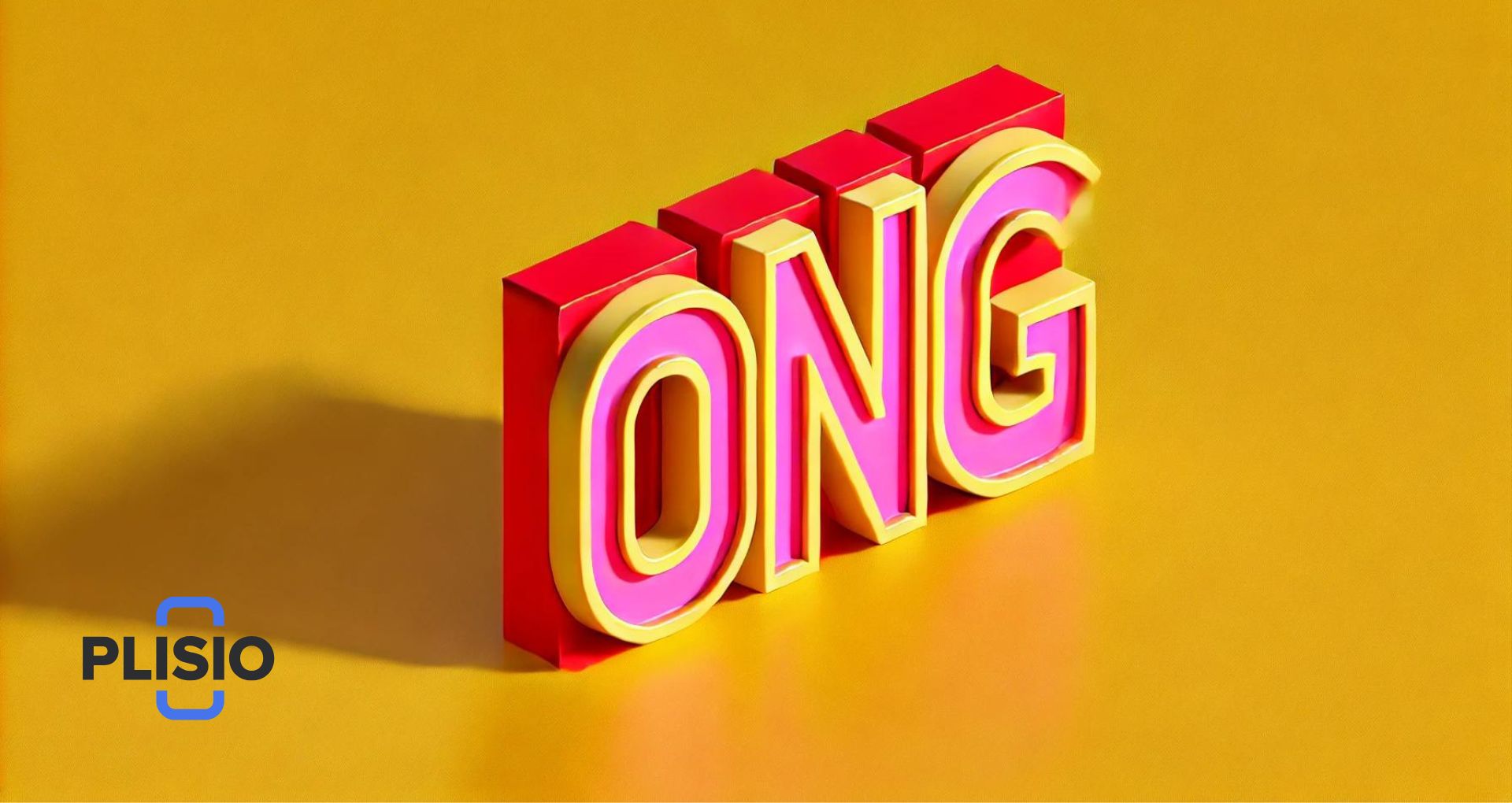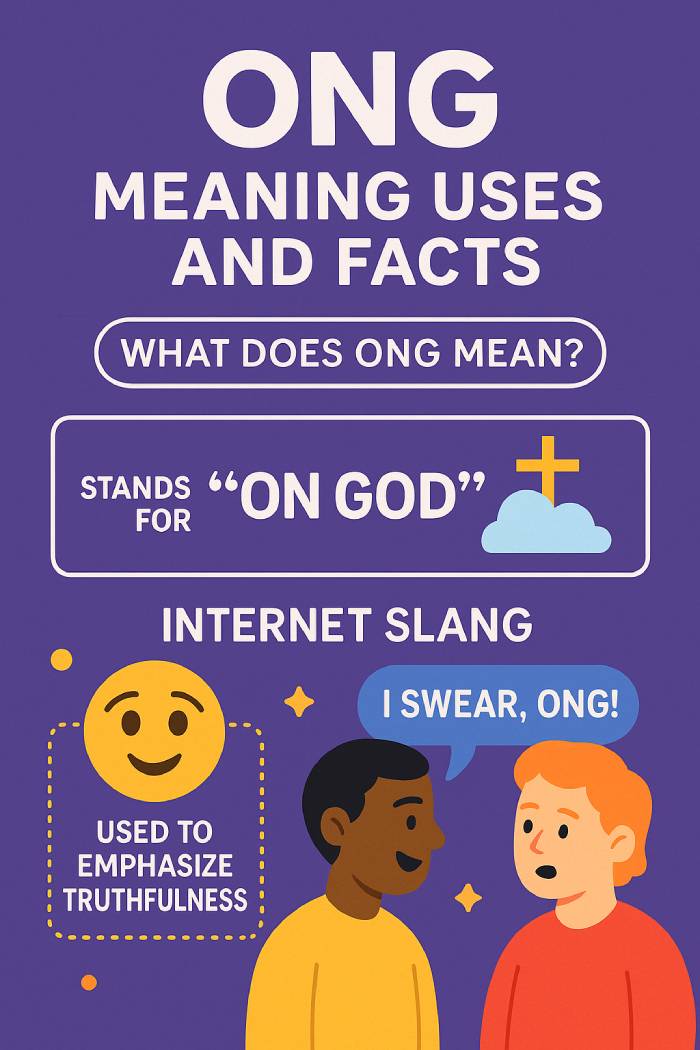ONG Meaning, Uses and Examples

If you've gotten a text message or read a TikTok comment that says "ONG" and were confused, you're not the only one. People are quickly using this online slang phrase on sites like Snapchat and TikTok. "ONG" may look like a typo or a misspelling of "OMG," but it has a distinct slang meaning that has to do with being honest and showing emotion. This tutorial explains what "ONG" means, how it's used in everyday speech, and how its meaning changes according on the situation.
What does "ONG" stand for? What does the abbreviation mean?
"ONG" stands for "on God," which is a word that means being honest, having strong faith, or being emotionally honest. It works like the phrase "I swear to God" in online lingo. For instance, "ONG "I didn't eat your food," or "This playlist is fire, ong."
When you use ONG in a text message or comment on social media, it shows how serious or true the statement is. Gen Z and younger English speakers use it a lot on sites like TikTok and Snapchat. Like any other slang, the phrase's meaning changes depending on the situation. It might not go down well in more official or religious settings.
What does the Internet slang "ONG" mean?
The slang phrase "on God" comes from African American Vernacular English (AAVE) and has been used for a long time to mean "honest" and "emphasis." It proliferated more through hip-hop and memes until it became the short form "ONG."
People started using ONG a lot on social media sites like TikTok and Snapchat about 2020, especially among Gen Z. It's part of a bigger trend of adopting online slang and acronyms to say things faster and with fewer words.

How to Use ONG in Text Messages
Here are some real-life instances of how people use the abbreviation ONG:
- "ONG I didn't delete your file" is used to stress the facts.
- Used to firmly agree with someone: "This pizza is unreal, ONG."
- "ONG?!" was a way to show shock. Did he really do that?
- Used to swear that something was true: "That's the best movie of the year, ONG."
- "ONG, you really did that by yourself?" is an example of praise.
These examples show how ONG is used in slang and how people often use it to stress the truth or seriousness of a remark.
What is the difference between the acronyms ONG and OMG?
"ONG" is not the same as "OMG," which means "oh my God." Both use religious language, but their implications are different. People usually use "OMG" to show that they are shocked or surprised, and "ONG" to show that they are honest and sincere. You can think of ONG as saying "I swear to God" and OMG as saying "wow" or "no way."
How to Use ONG Slang on Snapchat and TikTok
A lot of people on social media, especially TikTok and Snapchat, use the acronym "on God." People use "ONG" in captions, answers, and DMs to show that they are being honest or serious. People often use it alongside other modern slang words like "FR" (for real), "NGL" (not gonna lie), and "ISTG" (I swear to God).
How the abbreviation ONG shows how language and culture change over time
The use of ONG in internet slang shows how language changes to meet quick digital communication. People, especially Gen Z, often use short forms like ONG to show strong feelings or honesty when they communicate. People have even started pronouncing the letters out loud, like "O-N-G," in casual discussions, just like they do with other acronyms like LOL or BRB.
What Does ONG Mean in Crypto and Tech?
In the crypto realm, ONG is more than just a slang term; it is also the utility token for the Ontology network. Traders can say, "ONG this altcoin is about to moon," utilizing the word "ONG" as a cryptocurrency term and to show how sure they are of their prognosis. This two-part definition highlights how adaptable and context-dependent the abbreviation ONG is.
Other Uses for the Acronym "ONG"
Most of the time, ONG means "on God," but it can also signify a number of other things:
- Oil and Natural Gas: A word used in the energy business
- Organización No Gubernamental is the Spanish word for NGO.
- The French word for NGO is Organisation Non Gouvernementale.
- Ongoing—Used in managing projects
- Online Network Gaming is a term used in online gaming lingo.
- Optical Network Gateway is a term used in telecommunications and electronics.
Depending on the situation, ONG could mean one of these things, especially in professional or technical settings.
Conclusion: Knowing what ONG really means in slang and other contexts
People sometimes use the abbreviation ONG in text messages, TikTok videos, and casual Snapchat discussions to stress how honest, sincere, or emotional a comment is. It's a slang expression that means "I swear to God" and is often used by younger people to show that something is real.
But ONG can signify other things, like a slang word, a crypto currency, a phrase in the energy sector, or a reference to an NGO. A lot depends on the context of the conversation when it comes to understanding how to use ONG. So, the next time someone says "ONG," keep in mind that they may be talking about something important or they could be talking about crypto.
Knowing what ONG means can help you keep up with online lingo, current communication, and how language changes over time and on different platforms.

